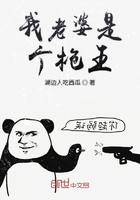2001年诺贝尔和平奖演讲
Nobel Acceptance Speech
科菲·安南
By Kofi Atta Annan
国王和王后陛下,各位殿下,各位阁下,
Your Majesties, Your Royal Highnesses, Excellencies,
挪威诺贝尔委员会的各位成员、女士们、先生们:
Members of the Norwegian Nobel Committee, Ladies and Gentlemen,
今天,一个女孩将诞生在阿富汗。女孩的母亲将与世界上任何地方的母亲一样,搂抱她、喂她、疼爱她、照顾她。这都是人性最基本的行为,人人如此,没有分别。但在今天的阿富汗出生的女孩,她将开始过的生活,与人类的一小部分已实现的富足生活相比,相差几个世纪。她的生活条件,在我们这个大厅中许多人看来,是不人道的。的确,这就像是两个星球上的故事。
Today, in Afghanistan, a girl will be born. Her mother will hold her and feed her, comfort her and care for her just as any mother would anywhere in the world. In these most basic acts of human nature, humanity knows no divisions. But to be born a girl in today’s Afghanistan is to begin life centuries away from the prosperity that one small part of humanity has achieved. It is to live under conditions that many of us in this hall would consider inhuman. Truly, it is as if it were a tale of two planets.
我谈到阿富汗的一个女孩,其实我也可以提到塞拉利昂的一个男婴,又或一个女婴。今天,没有人不知道世界上贫富之间的这一鸿沟,没有人能说一点也不知道这道鸿沟使一穷二白的人付出的代价多大。他们与我们一样,应当享有人的尊严、基本自由、安全、食物和教育。但代价不只是由他们承担的。最终,我们所有人都要承担,无论北方南方、富有的贫穷的、所有种族和宗教的男人和女人,都要付出代价。
I speak of a girl in Afghanistan, but I might equally well have mentioned a baby boy or girl in Sierra Leone. No one today is unaware of this divide between the world’s rich and poor. No one today can claim ignorance of the cost that this divide imposes on the poor and dispossessed who are no less deserving of human dignity, fundamental freedoms, security, food and education than any of us. The cost, however, is not borne by them alone. Ultimately, it is borne by all of us—North and South, rich and poor, men and women of all races and religions.
今天真正的边界不在国与国之间,而在于强者与弱者、自由者与受压制者、特权者与困窘者之间。今天,没有一堵墙能把世界上一个地区的人道主义或人权危机与另一地区的国家安全危机隔开。
Today’s real borders are not between nations, but between powerful and powerless, free and fettered, privileged and humiliated. Today, no walls can separate humanitarian or human rights crises in one part of the world from national security crises in another.
科学家告诉我们,自然世界非常小,而且高度相互依存。在亚马逊雨林的一只蝴蝶扇动翅膀就能够在地球另一边造成强烈风暴。这就是人们称为“蝴蝶效应”的原则。今天,我们认识到,或许比以往任何时候都应该认识到,人类活动世界也有自己的“蝴蝶效应”,是好是歹,都要面对。
Scientists tell us that the world of nature is so small and interdependent that a butterfly flapping its wings in the Amazon rainforest can generate a violent storm on the other side of the earth. This principle is known as the “Butterfly Effect”. Today, we realize, perhaps more than ever, that the world of human activity also has its own “Butterfly Effect”—for better or for worse.
女士们、先生们,
Ladies and Gentlemen,
我们通过一道火焰门进入了第三个千年。如果在9·11恐怖事件之后的今天,我们看得更清楚、更远,我们就会认识到人类是不可分的。新的威胁不会把种族、国家或地区分开对待。每个人,无论贫富或社会地位如何,都从内心产生了新的不安全感。年纪轻的、年纪大的,都对痛苦时和富足时维系我们大家的凝聚力有了更深刻的认识。
We have entered the third millennium through a gate of fire. If today, after the horror of 11 September, we see better, and we see further—we will realize that humanity is indivisible. New threats make no distinction between races, nations or regions. A new insecurity has entered every mind, regardless of wealth or status. A deeper awareness of the bonds that bind us all—in pain as in prosperity—has gripped young and old.
人们曾以为全球和平与繁荣必然逐步实现,但21世纪一开始所发生的暴力事件就去除了这种幻想。这是新的现实,再也不能视而不见,必须勇敢面对。
In the early beginnings of the twenty-first century—a century already violently disabused of any hopes that progress towards global peace and prosperity is inevitable—this new reality can no longer be ignored. It must be confronted.
20世纪可能是人类历史死难最多的世纪,这个世纪被无法数得清的冲突、不能名状的痛苦和难以想象的罪行折磨。一个集团或国家,往往出于无理性的仇恨和猜疑,或出于极度傲慢及对权力和资源的渴求,一再对另一集团或国家采取极端的暴力行动。为了应付这些大灾难,世界领导人在20世纪中叶走到一起,共同努力,促使各国空前团结起来。
The twentieth century was perhaps the deadliest in human history, devastated by innumerable conflicts, untold suffering, and unimaginable crimes. Time after time, a group or a nation inflicted extreme violence on another, often driven by irrational hatred and suspicion, or unbounded arrogance and thirst for power and resources. In response to these cataclysms, the leaders of the world came together at mid-century to unite the nations as never before.
联合国这个论坛从而产生。各国可以在这一论坛共同申明每个人的尊严与价值,为所有人民争取和平与发展。在这个论坛,各国还可以团结一致,加强法治,确认并设法满足穷人的需要,抑制人的残忍与贪婪,保护自然资源和美丽的大自然,支持男女权利平等,同时提供子孙后代所需的安全。
A forum was created—the United Nations—where all nations could join forces to affirm the dignity and worth of every person, and to secure peace and development for all peoples. Here States could unite to strengthen the rule of law, recognize and address the needs of the poor, restrain man’s brutality and greed, conserve the resources and beauty of nature, sustain the equal rights of men and women, and provide for the safety of future generations.
我们从20世纪继承了一些政治手段和科技工具。只要我们有此意愿善加利用它们,就有可能战胜贫穷、无知和疾病。
We thus inherit from the twentieth century the political, as well as the scientific and technological power, which—if only we have the will to use them—give us the chance to vanquish poverty, ignorance and disease.
科菲·安南(1938年4月8日—?),加纳人,第51届联合国大会任命安南为联合国第七任秘书长,是出身联合国工作人员行列而当选的第一位秘书长,也是第一位来自撒哈拉以南非洲的联合国秘书长,于1997年1月1日就职。
联合国及其秘书长安南于2001年12月10日在挪威首都奥斯陆获得了挪威诺贝尔委员会颁发的2001年诺贝尔和平奖,安南做了他著名的演讲。















